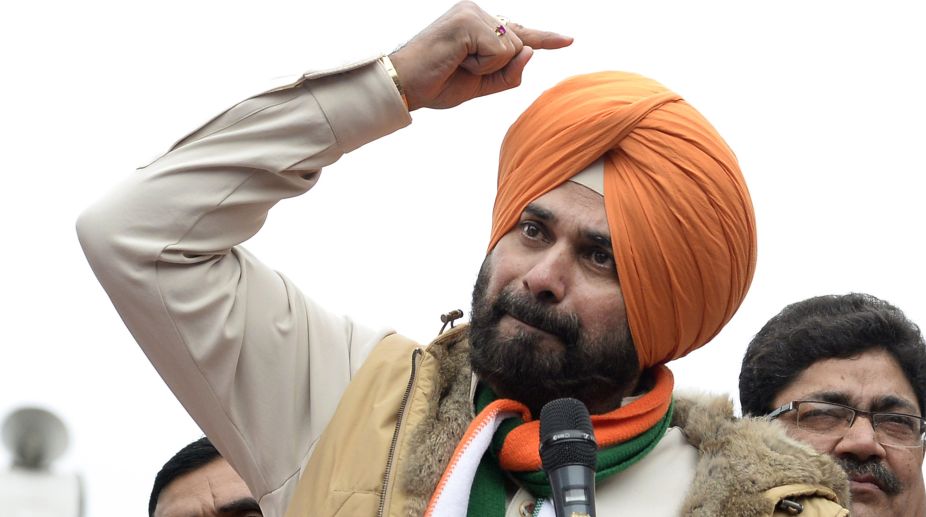The decision of Mr. Navjot Singh Sidhu to continue to be part of a TV comedy show despite being a Cabinet Minister in Punjab has raised a vexed legal question as to whether a minister while discharging his constitutional duties can be sanctioned to undertake commercial activities for her/his personal gain. Though there is no express legal or constitutional bar on doing so, but participating in a TV show to earn money is still an area of dispute which is directly in conflict with the code of conduct for ministers.
There is no decision of any court in this country, or for that matter, in other jurisdictions where the courts have attempted to regulate the personal conduct of a minister, or have sought to enforce ethical rules of personal behaviour. The inapplicability of the provisions of Office of Profit Law to a Minister would only demonstrate that this law requires a stern surgery.
The Rationale
The idea behind the office of profit – a concept that evolved in England – was to preserve the independence of the legislature by keeping its members away from any temptations from the executive that could come in the way of independent discharge of their duties and to ensure the neutrality and impartiality of MPs in the conduct of public affairs.
Articles 102 (1) and 194 of our Constitution empower Parliament and State Legislatures to declare certain offices under the Union or State governments as exempted from the disqualification. Governments had in past exempted many positions from the purview of this Article for their political convenience.
When dysfunctional laws like Prevention of Corruption Act, Dowry Prohibition Act and the Office of Profit law congregate to create a sluggish and dysfunctional State, the hope of developmental politics evaporates.
If Office of Profit does not apply to Mr. Sidhu because it is a private engagement, then an MP/MLA or a Minister cannot be stopped from becoming a Director of a Public Limited Company in lieu of an attractive salary. But then it would be more honest to abolish the office of profit law altogether, rather than amend it into such anaemic shape that it becomes a non-law.
Minister Already in a Dual Role
In the light of provisions of the Constitution, the Representation of People Act, 1951 as well as the Salary, Allowances and Pension of Members of Parliament Act, 1954, it can be easily argued that membership of Parliament or State Assembly is an ‘office’ in as much as it is a position carrying certain responsibilities which are of a public character and it has an existence independent of the holder of the office.
The words of the Oath or Affirmation – “faithfully discharge the duty upon which I am about to enter” – which is required to be made by a Member of the Legislature show that a Member is required to discharge certain duties after he is sworn in. However, in this respect, when a Member of Parliament or State Legislative Assembly is appointed as Minister, he gets a dual role – these being, firstly as a representative of his or her constituency, and as a representative of the Executive with a much wider ambit and responsibilities.
Engaging himself/herself in any other work for monetary benefits would certainly detract the Minister from his official duties and divert his attention. Mr. Sidhu may be a prodigious personality and be capable of discharging all duties scrupulously but allowing this will open a Pandora’s box.
From 10 am to 5 pm you are a public servant and after 5 pm you are not a public servant seems unfounded. Exceptions may have been created for persons like Dr. Bidhan Chandra Roy, who was conducting free clinics for the poor and provided free public service. But the bizarre logic of Mr. Sidhu that he needs money and doesn’t want to indulge in corruption, and so he should be allowed to work in a comedy show is not justified and raises many questions.
The Code of Conduct
The Code of Conduct evolved by the Union government is very clear that when a person is appointed a MP/MLA/Minister he is not expected to carry out any other business to earn money. The code of conduct evolved by the Union government and the state governments does contain statutory restrictions; but, since the code cannot be treated as law within the meaning of Clauses (2) to (6) of Article 19, the restrictions cannot be enforced by court.
The Andhra Pradesh High Court in Vidadala Harinadhababu vs. N.T. Ramarao, Chief Minister, AIR 1990 AP 20, in a matter quite akin to the instant case, declined to interfere on the ground that the court had no power to enquire into the desirability or otherwise of N.T. Rama Rao’s conduct, nor had it power to restrain him from engaging himself in the said activity – acting.
Conclusion
In a normative Constitution, moral issues must be susceptible of being translated into justiciable legal dispute to avoid this type of complexy. Individual patterns of behaviour or choice cannot be justiciable unless and until they offend any constitutional provision or provision of a statute. Ours being a nascent democracy, conventions and precepts governing the conduct of such high functionaries have not yet fully developed. They need to be developed and preserved at any cost. Though the conventions are rules which define major non-legal rights, powers and obligations of office-holders – the main objective is the-effective working of the machinery of political accountability – they are distinguishable from rules of law though they may be equally important or more important than rules of law. The demand for greater democratic accountability, transparency and political ethics requires public officials not only to act in the public interest but also to show that they are doing so.
The writers are, respectively, Associate Professor of Law, NLU Odisha and an Advocate, Supreme Court of India. The views expressed are personal.











